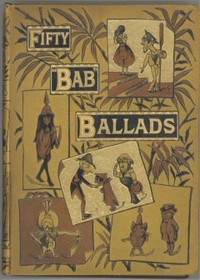Ballad: The Three Kings Of Chickeraboo
byThe Three Kings of Chickeraboo sets a delightful stage for examining satire through absurdity. With vivid imagination, the tale follows three eccentric men who crown themselves kings without a shred of formality or ancestral claim. The story begins on a sweltering day, with PACIFICO, BANG-BANG, and POPCHOP whimsically deciding that royalty is a matter of declaration, not lineage. Instead of palaces, each man selects a barrel as his throne, establishing kingdoms beside the sea with equal parts ambition and mischief. Their tools of rule are music and dance—PACIFICO taps bones, BANG-BANG strums his banjo, and POPCHOP flaps his feet in rhythm. Though their crowns are invisible and borders imaginary, their enthusiasm paints a kingdom more vibrant than many real ones. Their confidence springs from the belief that recognition comes not from merit or heritage, but from being discovered by someone powerful enough to validate their illusion. Thus, begins their royal charade.
As the heat rises, so does their performance. Each “king” behaves with the gravity of monarchs, despite the clear parody of their surroundings. The choice of barrels for thrones and the seashore as their palace grounds highlight the underlying comedy. They are not deluded, but rather in on the joke, performing a social experiment to test authority’s outer limits. Their antics are not rooted in deception but in theatrical satire—an invitation to question the true nature of power. How does one become royalty? Must it be through birth, conquest, or is recognition alone enough? In that question lies the charm of their farce. They await a great discovery, hoping Britain’s maritime influence will stumble upon their stage and validate their fantasy. This expectation drives their dramatic display, turning a joke among friends into an absurd diplomatic gamble. The humor works because the audience sees the lines they intentionally blur.
As fate would have it, the British navy does appear. REAR-ADMIRAL BAILEY PIP, a seasoned commander, peers through his spyglass and observes the bizarre scene—three men, three barrels, and an ocean backdrop fit for no ordinary kingdom. His training tells him to investigate; his curiosity makes the decision easier. Soon, a gig is lowered from the great ship, and the admiral approaches with the kind of formality typically reserved for actual dignitaries. The arrival of real authority contrasts starkly with the flamboyant display of mock authority. Yet, both sides play their roles with a strange harmony, knowing they each represent different kinds of theater. What could have been dismissed as lunacy is treated instead with a mixture of bemusement and protocol. This is where the satire sharpens—showing how easily systems of power engage with even the most ridiculous claims when presented with confidence and a touch of pageantry.
The encounter between REAR-ADMIRAL PIP and the kings is both ceremonial and surreal. The monarchs, unfazed, receive him with exaggerated pomp, mimicking the gestures of nobility as though they had practiced for this very moment. The admiral, amused yet bound by duty, addresses them with diplomatic respect, perhaps choosing politeness over challenge. Whether he believes in their sovereignty is irrelevant; what matters is the ritual of the meeting. They toast, they converse, and they reinforce the illusion with mutual performance. By acknowledging the farce, even silently, the admiral lends it unintended legitimacy. That irony is the beating heart of this ballad. It’s not just the mock kings seeking recognition—it’s also the empire, ever formal, playing into the absurdity out of protocol or amusement.
The entire episode holds a mirror to the nature of colonization and authority. Often, lands were claimed not by divine right or local consent, but by flag and formal greeting. In this reversal, it is the powerless who fabricate legitimacy, and the powerful who inadvertently affirm it. The ballad suggests that kingship, when stripped of war or inheritance, is often just a well-accepted performance. With clever rhymes and exaggerated characters, the narrative dismantles traditional hierarchies using humor and creativity. PACIFICO, BANG-BANG, and POPCHOP may not rule in truth, but they highlight a greater truth: many crowns are worn by those bold enough to declare them. Their tale becomes more than a jest—it becomes a parable for self-made identity and the peculiar dance of recognition.
One could argue this story reflects real-world parallels where titles and lands were historically exchanged through performance more than merit. It invites readers to question what really makes someone a ruler—is it history, paperwork, military force, or something as ephemeral as perception? The Three Kings of Chickeraboo thrive on the idea that confidence, spectacle, and timing can build a throne as solid as any gold one. As we laugh at their antics, we’re gently nudged to reexamine the systems we take seriously. Even as the sea washes their sandy kingdoms clean, the lesson remains: sometimes, the greatest power lies in the stories people choose to believe. This ballad, wrapped in jest, leaves readers with a grin—and a few lingering thoughts about the theater of power.

